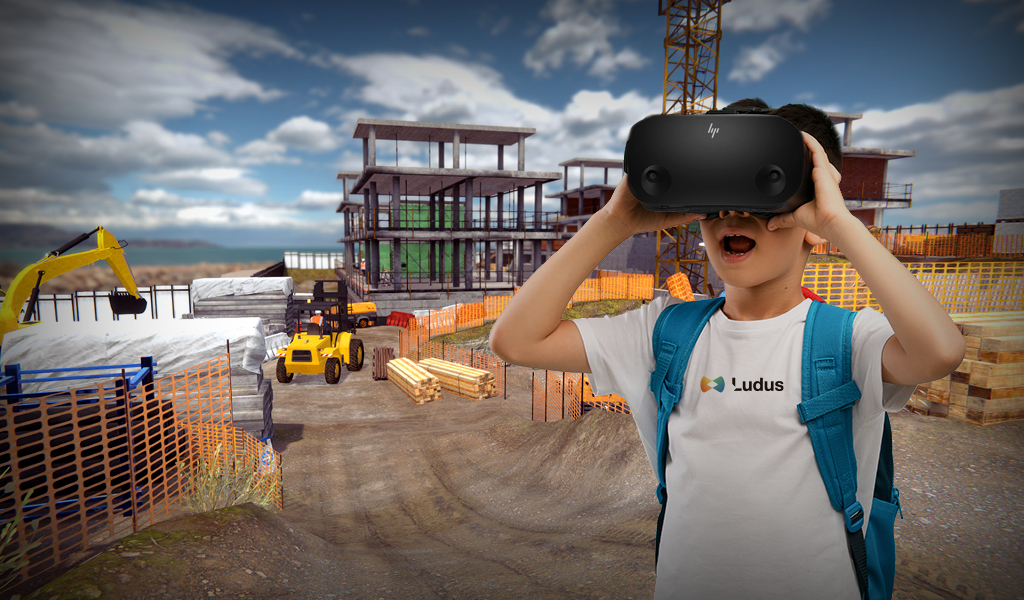The Fourth Industrial Revolution, characterised by emerging technologies that have transformed our society, has affected many areas such as education. What is known as Education 4.0 is already being promoted in Spain by the Ministry of Education and Vocational Training, with the emergence of the AtecA Classrooms. New technologies such as virtual reality are a great support for traditional training, such as those focused on health, safety and environment (HSE).
Education 4.0 is here to stay with tools such as virtual reality
The Association of Vocational Training Centres (FPEmpresa) claims that Education 4.0 is part of a process of evolution of society as a whole. Technologies such as virtual reality, according to the association, are "a perfect addition when it comes to improving student performance".
The education system has already begun to adapt to this new reality. In Spain, the Ministry of Education and Vocational Training has already promoted the creation of AtecA Classrooms. These classrooms allow vocational training centres to teach content using new technologies.
The transformation of vocational training involves taking advantage of tools such as virtual reality to teach content in an active and dynamic way. In short, the aim is to focus learning on the students themselves and to adapt it to current times.
What does the AtecA Classrooms project involve?
In order to get on the digitalisation and educational transformation bandwagon, the Ministry of Education and Vocational Training has been promoting the AtecA Classrooms (applied technology classrooms) initiative. These centres use new technologies to create modern learning environments for vocational training students.
The Ministry states that one of the steps in this VET modernisation plan is to convert classrooms into "spaces that allow work environments to be simulated using technological resources".
One objective of the AtecA Classrooms is to bring technologies such as virtual reality to as many students as possible. This is achieved by applying this tool to transversal vocational training content so that all students have access to it. An example of this would be the hours devoted in schools to training on health and safety at work (HSE).
Companies such as Ludus Global already offer this type of risk prevention training in virtual reality, thus offering a new way of learning. Ludus simulations allow students to learn about risks in an immersive and dynamic way, without compromising their safety.
Virtual Reality joins HSE training in AtecA classrooms
Spanish centres such as CIFP Hespérides or CPIFP Los Viveros are already using Ludus in their AtecA classrooms to teach their students about health and safety at work (HSE). The platform has simulations applicable to different areas, and the centres can access all of them by purchasing a single licence.
In this way, Ludus customers can access training courses such as LOTO, electrical risks, confined spaces, cardiopulmonary resuscitation (CPR) or fire safety, among many others. This allows students to start their future jobs with a solid knowledge of safety, much more complete than what they would receive in purely theoretical training.
In addition, the Ludus Global catalogue is constantly evolving, and new simulations are added at no additional cost to the client. This operation is similar to that of platforms such as Netflix. According to the article 'Learning through virtual reality' by Deloitte, the benefits of training employees with VR range from the impact and satisfaction of the training to learning retention. They also highlight the savings for organisations in training costs and direct improvements for their employees in critical or relevant company operations.
In the case of students, it is also important that, in addition to receiving up-to-date and appropriate HSE training, they come into contact with the technology itself. Tools such as virtual reality are part of the present and the future of our society, and the workers of the future must learn how to use them and become familiar with them.
If you would like to receive information on how to implement Ludus technology in your classroom or company, fill in your details in the following link and we will contact you.


